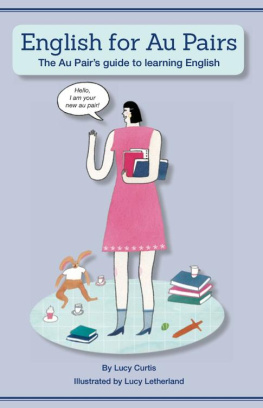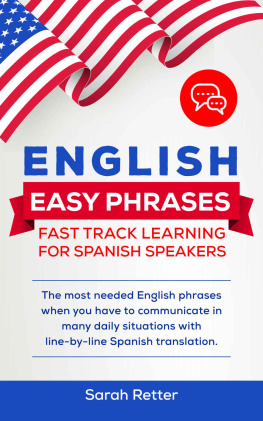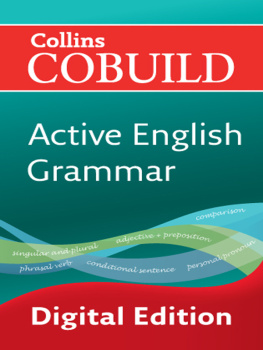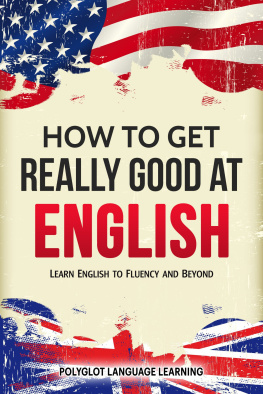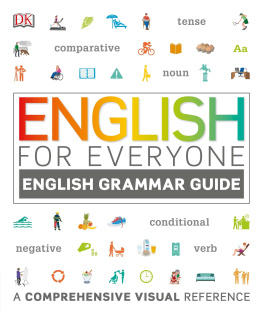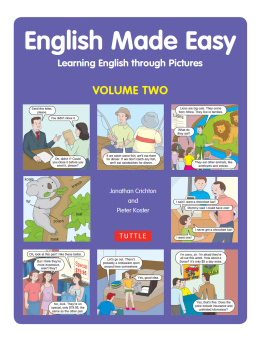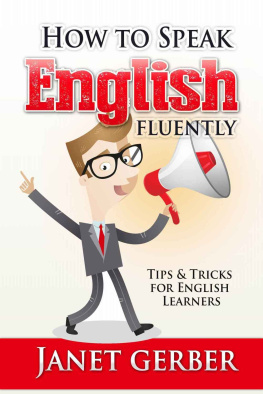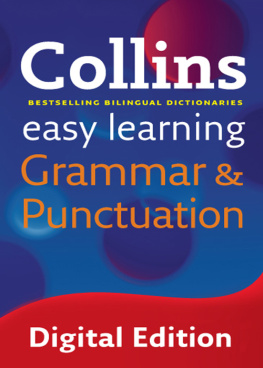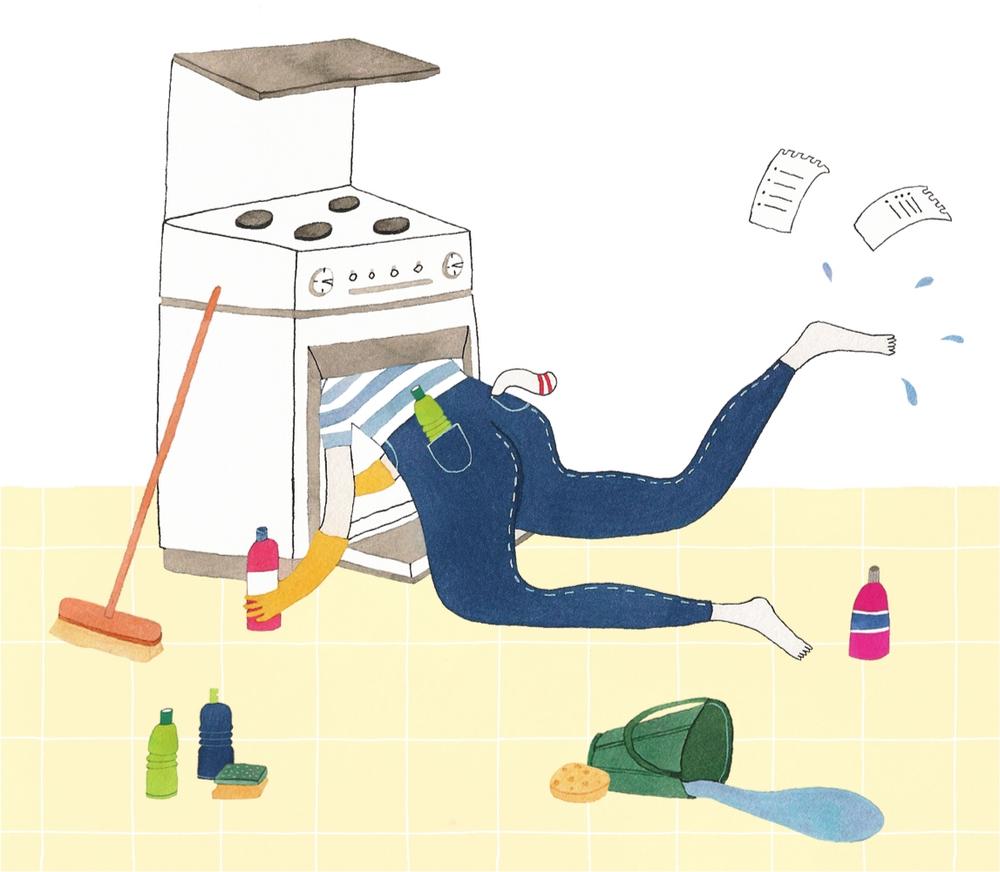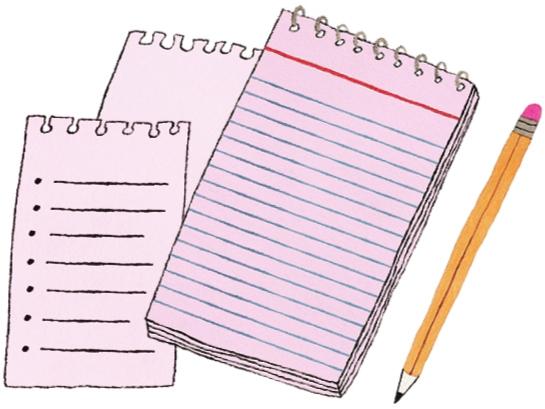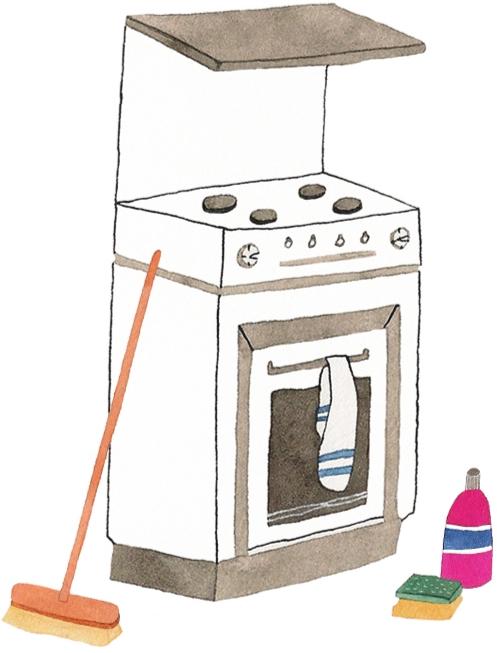by Catheryn Kilgarriff, Publisher
Every year, thousands of young women, and some young men, leave their countries and arrive in England to look after children, live with a family, and learn English. The host families have to adjust to a person from a different country, and there are a multitude of differences and misunderstandings, on both sides.
I had the idea for this book when a new young woman came to clean our house. She is called Marta, and she comes from Poland.
I asked Marta what her background was, and she told me that she had recently graduated with a degree in journalism from a university in Poland. A break up from a boyfriend had spurred her to make this huge change in her life, and she had arrived in London with a friend, and they were both cleaners, sharing a room.
Martas English was good, but I soon noticed that it did not progress. In fact, some weeks, it seemed to have gone backwards, and soon she started using phrases like Hello, darlin, just like an old fashioned char-lady.
I thought - what if she could learn English properly? What makes her so different from our au pairs, when our children were younger? A lot of our au pairs found English hard, and some did not pass their exams. When I looked at the text books they were using, I could see why they did not like the lessons.
I knew that English for Cleaners was unlikely to take off, so my thoughts returned to au pairs. I still think that most of their text books, although grammatically useful, have content that is a million miles away from their day to day experience of being in a new household. I also thought that the host families may not know how to handle the many situations which crop up, and that they would appreciate a book which included them as characters.
So, I decided to commission a book from Lucy Curtis, who also has employed au pairs, as well as run a language school teaching them English. She also had jobs as an au pair, while she was studying Modern Languages at Oxford University. I wanted a book which was relevant to the au pairs, and one that would make them laugh. I hope that prospective host families will read it, and find it fun, and use it to help the young people learn English.
To my family
and all the au pairs Ive
had the pleasure of knowing.
Lucy Curtis
My head is in an oven. What am I doing here? The oven is very dirty and I am cleaning it. My host mother wants me to clean this dirty oven and also the fridge. It is my first day as an au pair.
I am Marta and I arrived last night at 9pm after a long journey from my home in Poland. My host mother collected me from the airport. She was in a hurry and she said very little in the car.
The children were in bed when I arrived here last night. Now they are on their way to school. I dont know this family and I dont know my way around this house. No one is here and I feel alone.
It is now 9 o clock in the morning and my new life is beginning. I must clean the oven and the fridge. After that, there are more jobs. There is a list on the table. It says:
- load the dishwasher
- hang out the washing
- wash the kitchen floor
- bleach the toilets
- clean the bathrooms
- do the ironing
- dust the furniture
- vacuum all the carpets
My host mother is taking the children to school. My host father works in London. I am still very tired after my long journey here last night. I woke up at 8.30am this morning and there was a note for me from my host mother. It says: We usually get up at 7.15am. I am taking the children to school - back at 1pm. Heres a list of jobs to do this morning.
I am very hungry, so Im looking for something to eat for breakfast. In the fridge there is a pot of yoghurt. Its delicious!
* * * * * * *
It is 1.15pm and my host mother is back. She is not happy with me because I ate her yoghurt. It is her special yoghurt and I must not eat it. She is also angry because the oven is not clean enough. I feel uncomfortable.
It is 3pm and I am still ironing. My host mother is asking me to make a Shepherds Pie for tea. I do not know what Shepherds Pie is. Now she looks angry again and I feel unhappy.
I am in my room and I am phoning the au pair agency. The lady at the agency is kind. I feel upset because the host mother wants me to do heavy-duty cleaning, but my job is to do light housework only. I explain that my host mother doesnt treat me like a member of the family and they do not want me to eat their food!
The lady at the agency understands my problem. She asks me, Do you want to move to another family? I am trying not to cry as I say, Yes, please. The agency is looking for another family for me. I feel so glad!
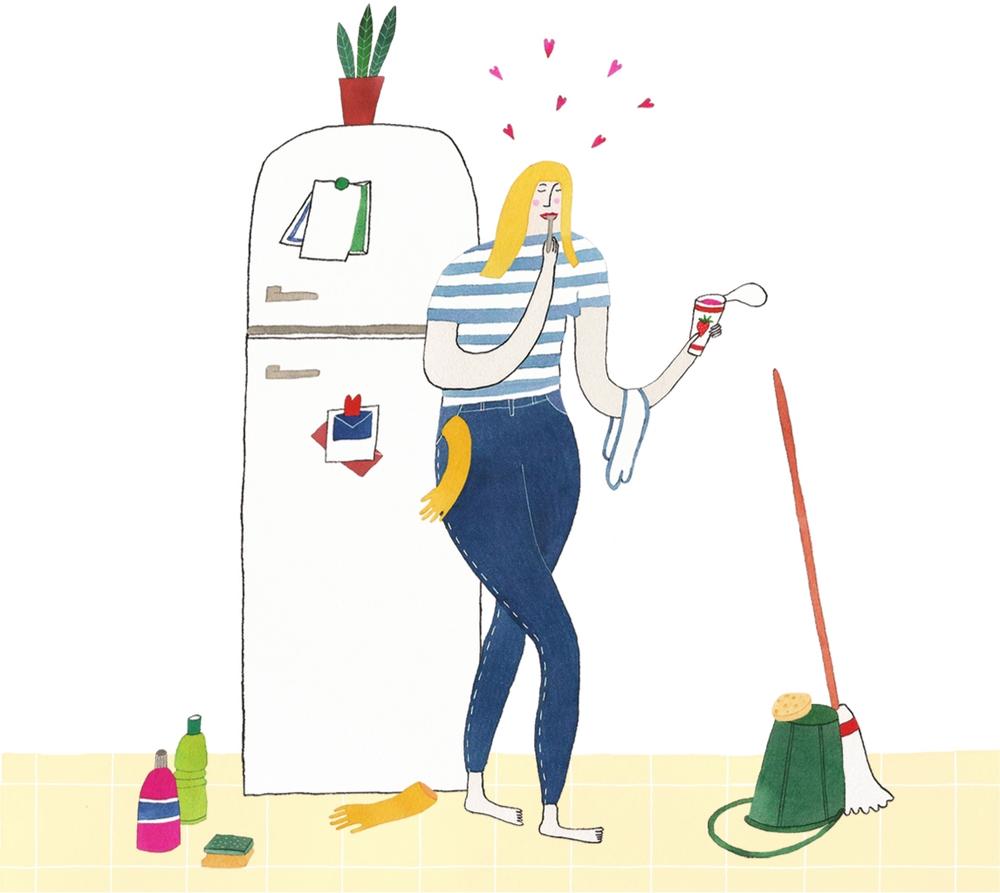
Useful tips

Use an agency to find your host family. That way, if there is a problem and you need to change families, the agency will be able to help you. The British Au Pair Agencies Association has a list of approved agencies. See www.bapaa.org.uk or www.IAPA.org for further details.
Before you start, make sure you and your host family both agree how many hours you will work each day and what your responsibilities are.
Brush up on your English

Present continuous
Use the present continuous for things which are happening now, at the moment of speaking.
e.g. My host mother is taking the children to school.
Positive form
She is taking the children to school.
Negative form
She isnt (is not) taking the children to school.
Question form
Is she taking the children to school?
Negative question form
Isnt she taking the children to school?
Present simple
Use the present simple for habitual truths.
e.g. My host father works in London.
Positive form
He works in London.
Negative form
He doesnt (does not) work in London.
Question form
Does he work in London?
Negative question form
Doesnt he work in London?
Some verbs never or rarely take the continuous form. These are verbs which describe states as opposed to actions. State verbs relate to:
mental and emotional states - love, hate, prefer, think, understand, remember, feel, know, believe, suppose.
senses - see, smell, hear, taste, feel.
communications and causing reactions - look (seem), agree, disagree, deny, mean, promise, surprise, satisfy, astonish, impress, please.
possession and other verbs - be, belong, need, have, contain, fit, include, measure, owe, own, possess, want, weigh.

